Ensure it’s clean, dry, and level.
Reach out for efficient, cost-saving, and luxury marble floor heating.


With decades of hands-on experience, we've honed our craft to become leaders in the heated floor industry. Trust in our expertise to deliver solutions that truly stand the test of time.

For our heated floors, we carefully select and offer only the best products. With GWD you're investing in durability, efficiency, and cutting-edge technology.

We're committed to providing top-tier heated floor solutions at prices that are competitive and fair. No compromises, just the best value for our valued clients.

Our team of highly skilled installers ensures that your heated floor system is set up seamlessly, with precision and care. Experience excellence from the ground up with our expert installation crew.
Delving into the world of radiant underfloor heating, there are two primary contenders: electric and hydronic systems. Both come with their unique set of benefits and challenges, ranging from installation complexities to maintenance needs.
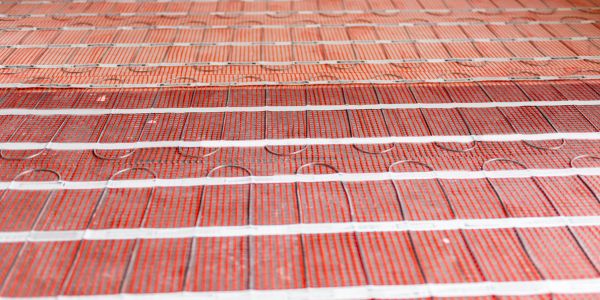
Electric Radiant Underfloor Heating systems utilize electric resistance cables or mats to produce heat.The electric cables or mats are spread out and fixed across the floor, and once activated, they directly heat the floor surface above. Electric systems are inherently more reliable than hydronic systems as they have no mechanical or moving parts that could break down. The installation process is also much quicker and simpler, and there is no required maintenance.
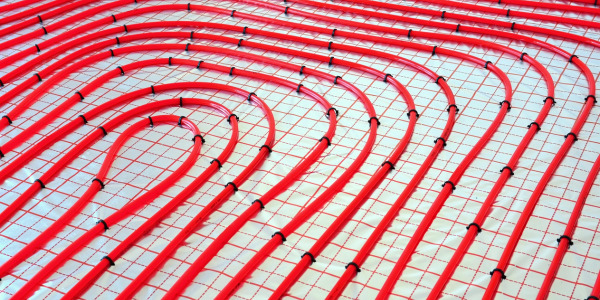
Hydronic systems use a series of tubes laid beneath the floor into which warm water from a boiler circulates, producing radiant heat. They are typically more complex and expensive to install compared to electric systems and have a much higher likelihood of breaking down and need of repair. Hydronic systems also require regular maintenance unlike their electric counterparts.
Heated marble floors add a touch of luxury to any space. Whether for a new build or a retrofit, understanding the associated costs, from tile selection to installation, is crucial.
| Marble Tiles | $5-10/ft² |
|---|---|
| Or | |
| Marble Slabs | $10-20/ft² |
| Plus | |
| System Cost | $14/ft² |
| Plus | |
| Installation Cost | $8-20/ft² |
| Plus | |
| Subflooring Replacement Costs | $3-10/ft² |
| Plus | |
| Underlayment Costs | $0.50-4.50/ft² |
| Total | |
| Low End Estimate | $30.50/ft² |
| Upper End Estimate | $78.50/ft² |
Same as New Build
Plus
Removal of Old Flooring = $1.50-3.50/ft²
Same as New Build*
* Retrofitting entails placing the heating component between the floor joists from underneath the room. This method doesn’t necessitate changing the completed floor; however, it does demand access from an open ceiling below the room. If there’s an existing finished ceiling, like drywall or plaster, it will have to be taken down to access the joists.
For those considering the luxury of a heated marble floor, understanding the installation process is as crucial as knowing the costs. From preparing the subfloor to the final checks post-installation, each step ensures a seamless finish and optimal performance.
Ensure it’s clean, dry, and level.
Decide on the layout and spacing.
Prevent heat loss and direct warmth upwards.
Follow the planned layout.
Ensure a safe electrical connection.
Adhering to manufacturer’s guidelines.
Re-test the system post-installation.
Yes, it’s absolutely possible. Whether you’re renovating an existing space or constructing a new one, underfloor heating is an excellent addition to marble floors, enhancing both their comfort and luxury appeal.
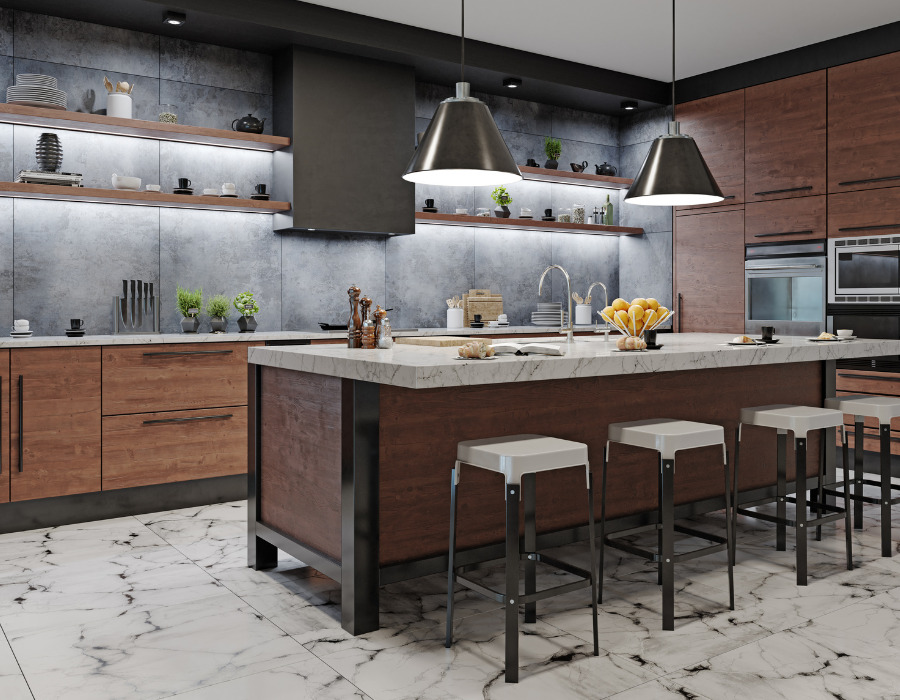
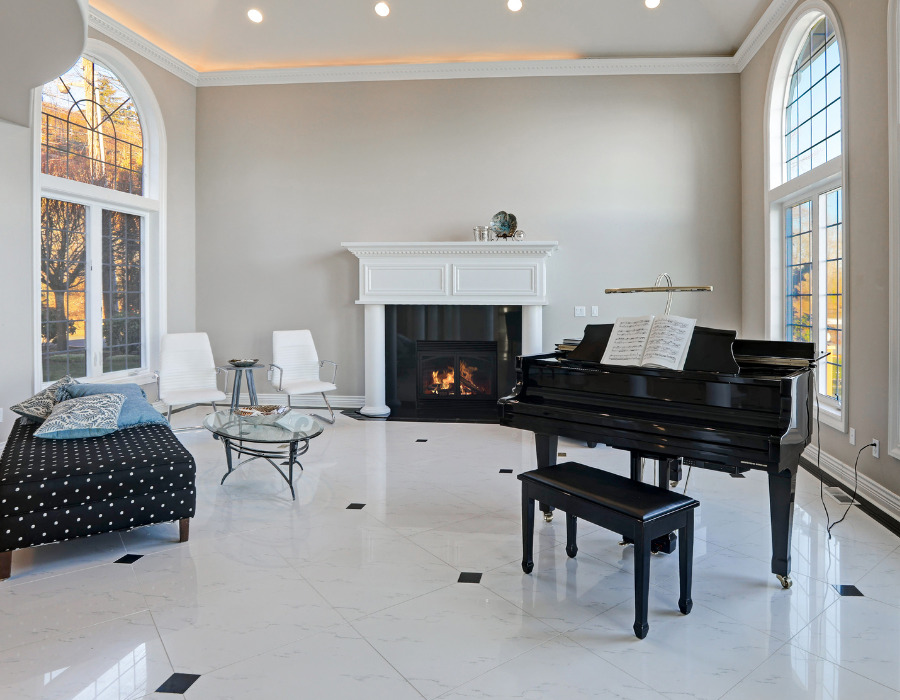
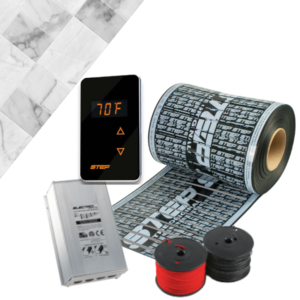

No, at least not until the temperature consistently exceeds 329 degrees Fahrenheit – so no issues with that when it comes to installing radiant heat mats under marble.
Yes, heated marble floors can be an attractive feature for potential buyers. They combine the luxury of marble with the comfort of radiant heating, making spaces more appealing, especially in colder climates.
Radiant heating is generally more efficient than traditional heating methods due to direct heat transfer. Paired with marble’s natural conductivity, due to its high thermal mass, it ensures effective warmth distribution, potentially leading to energy savings in the long run.
The only other additional cost you are likely to encounter when installing radiant heated floor systems is for floor insulation. This can be required for retrofits, remodels or new build projects but only in certain scenarios, such as rooms that are located above an unheated room or rooms that are on concrete slabs.